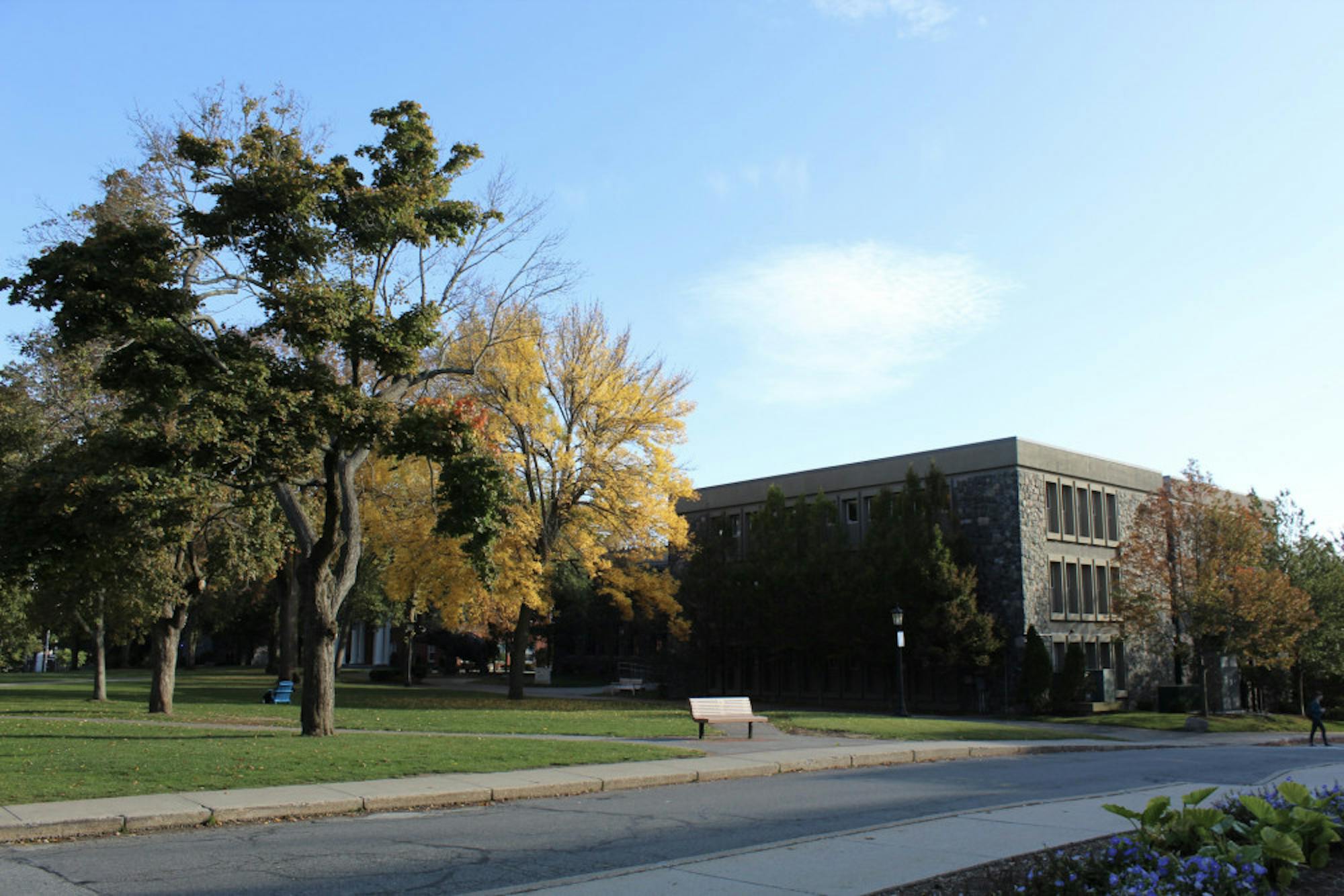The Jonathan M. Tisch College of Civic Life and the Institute for Global Leadership hosted a panel of speakers on Oct. 14 to discuss the current, worldwide uptick in misinformation. The event was part of a three day symposium on “Preserving and Promoting Freedom of the Press.”
The panel was moderated by Paloma Delgado, a member of the Education for Public Inquiry and International Citizenship program, and consisted of six speakers, some of whom are reporters and others who work at press freedom nonprofits. Delgado, a senior, opened the event by framing why the issue of misinformation is particularly relevant now.
“The internet and social media have vastly democratized access to information for millions of people around the world,” Delgado said. “But there's also a flip side. The explosion of content has also led to the ability to spread misinformation and disinformation.”
Each speaker gave an opening statement. Bret Schafer, senior fellow and head of the information manipulation team at the Alliance for Securing Democracy, discussed some of the risks to journalists that have increased in recent years.
“The attacks have escalated significantly — aimed at fact checkers, [disinformation] researchers, the media — so there’s been a real effort to poison the well,” Schafer said. “This has created a real problem for those of us who work in this space, especially for journalists, because often now, we're not just fact-checking the facts, but also thinking how it will be interpreted and how it will be intentionally misinterpreted.”
Tiffany Hsu, who covers misinformation for The New York Times’ technology team, explained the impact that her journalism has had on her personal life.
“[Misinformation] is a beat that has proven to be deeply depressing and nightmare-inducing,” Hsu said. “But it's also fascinating and really heartening to see that there is a growing group of researchers, journalists, specialists, politicians that are coming together to talk about it.”
Ilya Lozovsky (LA’06, F’12), a staff writer at the Organized Crime and Corruption Reporting Project, then spoke about the role of journalism in combating misinformation.
“I think good, honest journalism that is actually trying to inform readers of the truth needs to be subsidized and promoted and valued and supported, and it really needs to be seen as a public good,” Lozovsky said. “I think that the more people are able to consume good journalism that they trust, then ... fewer people will be the potential audience for the really bad actors to spread their disinformation.”
Matthew Cooper, executive editor of digital at Washington Monthly, explained that while misinformation is not necessarily a new phenomenon, its consequences are different than before.
“I think [misinformation] is always there,” Cooper said. “What changes is the … consequences. I think we'd be mistaken to think that journalism is always a bulwark against it … I do think there's some encouragement in the fact that people have extraordinarily good bulls--- detectors on the internet when it comes to scams.”
Allison Lee (LA’92), Los Angeles director at PEN America, also warned of the new consequences of misinformation.
“I've seen before the journalists who are working in hotspots around the world — they're the ones who are the canaries in the mine,” Lee said. “When freedom to write is threatened, that other freedoms are not far behind.”
Finally, Michael Zwirn (F’01), director of development for Reporters Committee for Freedom of the Press, discussed some of the legal concerns that journalists have faced in recent years.
“The misinformation dilemma falls in the midst of a whole host of stress facing journalism in the United States, including the fact that newsroom budgets are shrinking and legal budgets are often the first to be cut,” Zwirn said. “Inside the United States, there are some alarming legal approaches. The states of Texas and Florida have put forth neutrality obligations that they're trying to impose on social media platforms.”
Delgado then asked the panelists a series of questions, mainly focusing on the balance between freedom of speech and combating misinformation.
“How can we, on the one hand, prevent disinformation on a global scale, but also ensure that we are not silencing or censoring the voices of reporters?” Delgado asked.
Lee responded that the fight against misinformation and free speech do not need to be mutually exclusive.
“No one wants to silence a voice, and yet, the very nature of disinformation is that it silences the voices without even having to spread the lies, because people avoid those stories simply because the risk is too great,” Lee said.
Delgado also asked about the role of social media in the spread of misinformation. Schafer responded that while social media often exacerbates the problem, it can also be a part of the solution.
“The only way Russians are getting accurate information about the war in Ukraine is through social media platforms,” Shafer said. “I think we have to look still, a little bit, at the promises and the benefits of social media and the internet, not just the bad.”
The panel concluded with a brief audience Q&A session.






